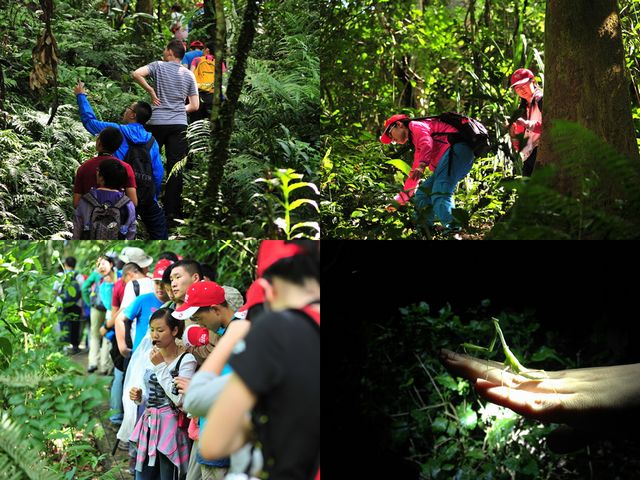A 15-day science exploration summer camp brought together tens of students from over 10 middle schools of Beijing to Xishuangbanna Tropical Botanical Garden (XTBG) during July 15-29. During the summer period XTBG researchers and education staff worked together to provide fun and entertainment as well as exploring the world of science.
The summer camp was composed of observing diverse plants and animals, going into science laboratories, small science project research, and lectures of different topics, etc.
The camp members were led to the tropical rainforest and living collections, and taught to observe the difference of species distribution, diverse species of plants。 Sightseeing in the evening, bird watching and spider watching were also organized. The game of recording the names of plant species in shorthand attracted much attention among the students.
The students were shown around the central laboratory, paleoecology laboratory. The fossils aroused their interest.
9 small science projects were conducted by the students under the guidance of XTBG researchers. The science projects covered such topics as global climate change, co-evolution among species, protection of rare and endangered plant species, observation on the microscope structures of the leaves, etc.
Many researchers were invited to give lectures, including such topics as “biodiversity in Xishuangbanna”, “how to design an experiment”, “how to analyze data”, etc. Prof. Chuck Cannon, a senior visiting scholar of XTBG, talked about “biodiversity conservation in tropical Asia” with the students. Dr. Lily Zeng from Yale University shared her school life.
Through the summer came, the students’ interest in science was promoted. They interacted with each other and developed abilities in questioning, discussing, analyzing and solving problems, which will eventually contribute to the development of their spirits to explore and innovate.

Observing biodiversity

